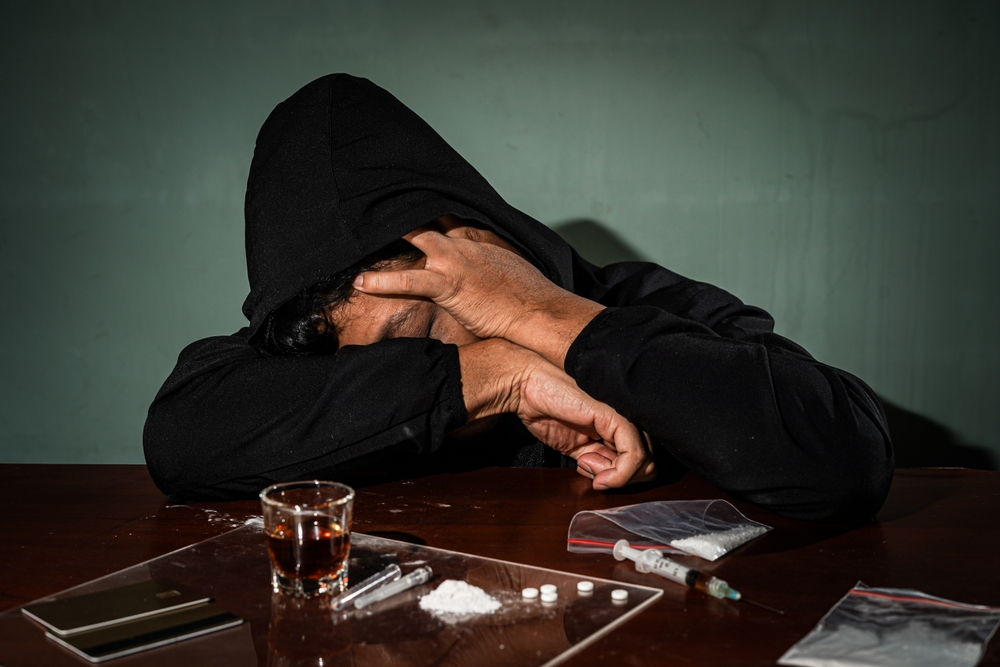Last Updated:
June 20th, 2025
What is drug or alcohol misuse?
In many places, having a drink after work, taking something to unwind or using substances in social settings can feel completely normal. We’re surrounded by messages that say, “This is just what people do”, but that can make it really hard to spot when someone’s relationship with drugs or alcohol has shifted from casual use to something more serious.
So, what does it look like when that relationship turns unhealthy?
Signs of risky or unhealthy substance use
It’s not always dramatic. In fact, unhealthy drug or alcohol use often starts subtly and builds over time. Here are some signs that someone’s relationship with substances might be heading into risky territory:
- They use substances to cope: whether it’s stress, sadness, boredom or anxiety, they turn to alcohol or drugs to manage how they feel.
- It’s starting to affect their responsibilities: things like work, parenting or study are slipping through the cracks.
- They’re taking bigger risks: driving under the influence, mixing substances or using more than they intended to.
- They’ve built up a tolerance: needing more of the substance to feel the same effects they used to get with less.
- They hide or downplay their use: lying about how much they’ve had or becoming defensive when questioned.
- They can’t seem to cut back: even if they’ve promised themselves or others that they’d stop or slow down.
If you’ve noticed any of these signs in someone close to you, it doesn’t automatically mean they’re addicted. But it could mean their relationship with drugs or alcohol has entered worrying waters. So, what can you do?

How do I speak to my loved one about their issues?
It’s a tricky situation to be in. You can tell your loved one is struggling, but you’re unsure what to do. Something just feels off. You’re torn between speaking up and staying quiet but both options feel risky. If you come out all guns blazing, accusing them of having an addiction, you know deep down it could backfire. But if you tiptoe around it, will they even take it seriously?
The truth is, you might not even know if they do have a problem. It could be a temporary low, a reaction to something going wrong in their life or a much deeper issue. The only way to begin untangling that is through conversation, and how you start that conversation matters.
Below are some ways to approach it carefully and honestly without jumping to conclusions.
Conversation tips: What to do and what to avoid
|
Do |
Don’t |
| Choose a calm moment when you’re both relaxed and unlikely to be interrupted. | Bring it up in the heat of an argument or when either of you is emotional. |
| Use “I” statements to express concern: “I’ve noticed you seem really down lately and I’m worried about you.” | Say “You’ve got a problem” or “You’re being an addict.” |
| Ask open-ended questions like “How have things been going for you lately?” | Fire off accusations or expect instant answers. |
| Let them know you’re there to support them no matter what. | Make it sound like you’ll only stick around if they admit something. |
| Be ready to listen, even if what they say doesn’t give you clear answers. | Interrupt or try to “fix” them in the moment. |
| Stay calm if they’re defensive or deny anything is wrong. | Take their reaction personally or push harder if they shut down. |
| Acknowledge that it might be something temporary and you’re not trying to label them. | Assume or state that they must be addicted. |
This kind of conversation shows that you care enough to ask, gently, what’s really going on. Even if the talk doesn’t lead to immediate clarity, it plants a seed that could grow into trust, honesty and hopefully, healing.

Possible outcomes of the conversation
So, you’ve had the chat with your loved one. It often goes one of two ways: either they open up and acknowledge something isn’t right or they shut it down completely. Whichever way it went, it’s natural to feel unsure of what to do next. Below, we look at what to do in each situation.
My loved one feels they may be addicted to drugs or alcohol
If your loved one admits they might be struggling with drugs or alcohol, then as strange as it sounds, it’s worth acknowledging the progress. It’s not easy for anyone to say out loud that they might need help. That kind of self-awareness doesn’t come easily, especially when addiction may be clouding their thinking.
Now, you may be wondering what to do. One of the most helpful things you can offer is a route towards professional support. That doesn’t mean you need to figure out all the answers, but pointing them in the direction of help, like speaking to a drug and alcohol rehab centre, can be a big step.
We’re not saying they definitely need to enter rehab right away. However, professionals in addiction recovery can assess the situation properly and advise on the right course of action. If treatment is needed, they can guide your loved one through what a recovery programme might look like. You’ve already played a huge part in getting them to this point. Let trained experts take over from here.
My loved one rejected my concerns
This one hurts. If your loved one completely rejected what you said, it’s easy to feel disheartened, especially if you spoke from a place of love. Unfortunately, denial is incredibly common when it comes to addiction.
If you’re still deeply concerned, it may be time to consider a drug or alcohol intervention. An intervention is a planned and structured attempt to help your loved one recognise the impact of their behaviour and consider accepting help.
Here’s what an intervention usually involves:
- Gathering a small, trusted group of family or friends who care deeply about the person.
- Planning out what to say, including examples of how the addiction is affecting them and those around them.
- Offering a clear route to help, such as suggesting a specific rehab centre or support programme.
- Staying calm and compassionate, even if emotions run high.
If you’re unsure how to do this, Addiction Helper can guide you through it. They can even connect you with trained interventionists who are experienced in dealing with these exact situations.
How can I find support?
If you’re worried about someone you care about, we at Addiction Helper can support you. Our team is available 24/7 to listen and help you understand what steps to take next. Whether it’s arranging a professional assessment or simply talking things through, we’re here. Reach out today and take that first step with us.
Our compassionate team are ready and available to take your call, and guide you towards lasting the lasting addiction recovery you deserve.

